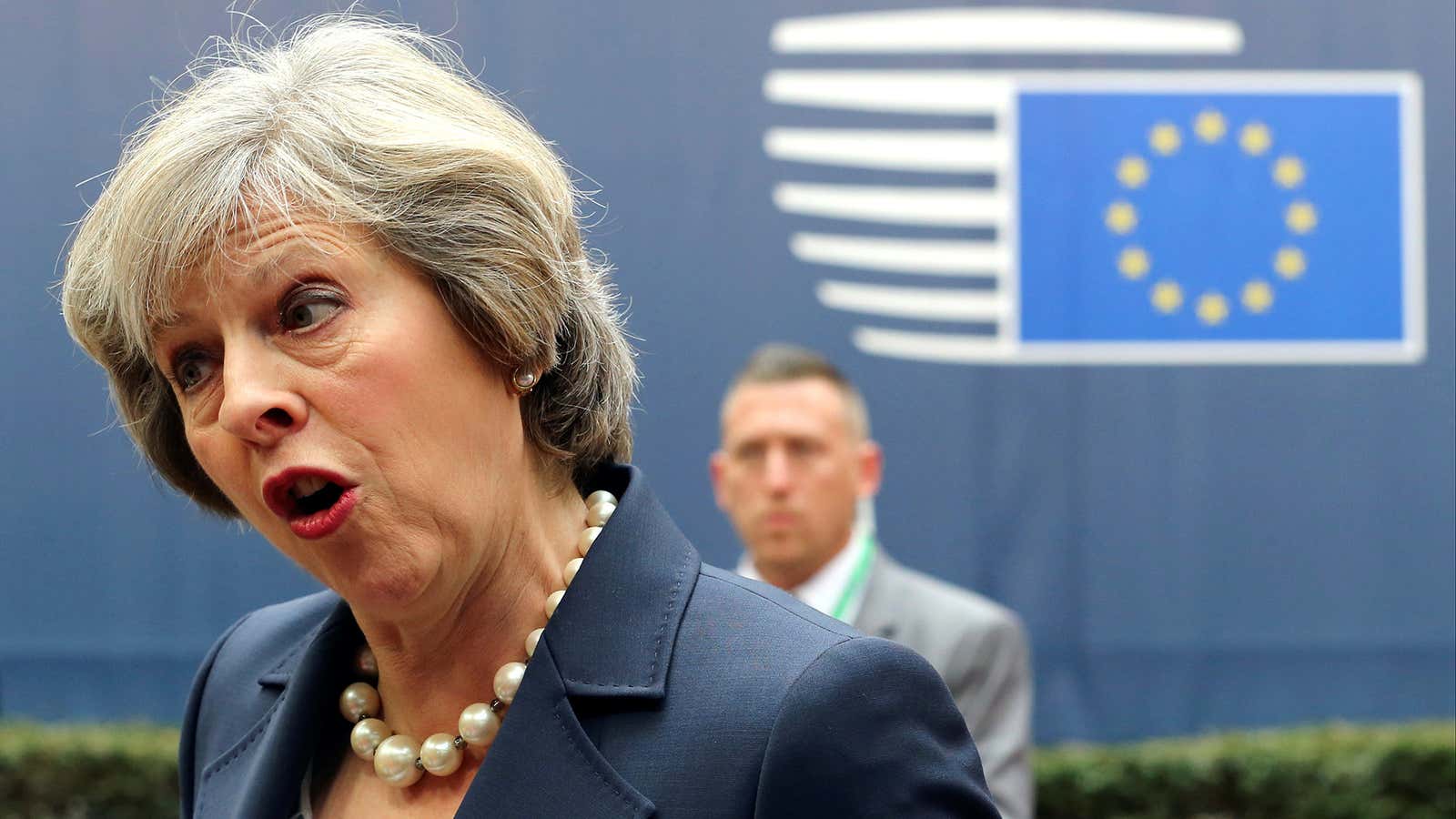Before she became the UK’s prime minister a few months ago, Theresa May was described as “straightforward, shrewd, and reassuringly staid,” but also “inscrutable.” Nobody knew her stances on some of the most pressing issues facing the country and, ironically, that helped her win the leadership of her party, and thus the country’s top job, against more opinionated rivals in the post-Brexit scramble.
As she faces the enormous task of negotiating Britain’s divorce with the European Union (EU), she remains as inscrutable as ever. She often stresses that “Brexit means Brexit,” but rarely elaborates.
Politicians are famous for their ability to avoid answering questions. May, however, is in a league of her own, according to Peter Bull, a psychologist at the University of York, who studies equivocation (the use of ambiguous language to conceal true feelings).
In a review of political interviews, Bull identified 35 different techniques that politicians use to evade answers. These include “attacking the question,” “rephrasing the question,” and even “attacking the interviewer.” In May’s case, however, he had to invent a new category to describe her approach: “giving a non-specific answer to a specific question.”
For instance, on a BBC talk show May was asked, “In your view, should we have access to the single European market?” She replied, “Well what I want to see is the best possible deal for the United Kingdom in trade in goods and services.” When asked, “Would you prevent that second [independence] referendum happening [in Scotland]?,” she answered, “I don’t think it’s a question of whether there could be a second referendum, it’s whether there should be a second referendum.”
“May’s responses are polite and relevant to the substance of the question, but do not provide the requested information,” Bull explains in The Conversation. Bull analyzed two recent interviews in which May faced questions from the BBC’s Andrew Marr, and he found that May used this technique in 9 out of 10 cases.
In a rare moment of clarity, May committed to starting the formal process of leaving the EU by March 2017. As that date approaches, it will be harder for the prime minister to stick to her her unique technique of evading difficult questions. As a recent parliamentary discussion shows, she is now reverting to more common political equivocations, such as “claiming the question is based on a false premise.”
